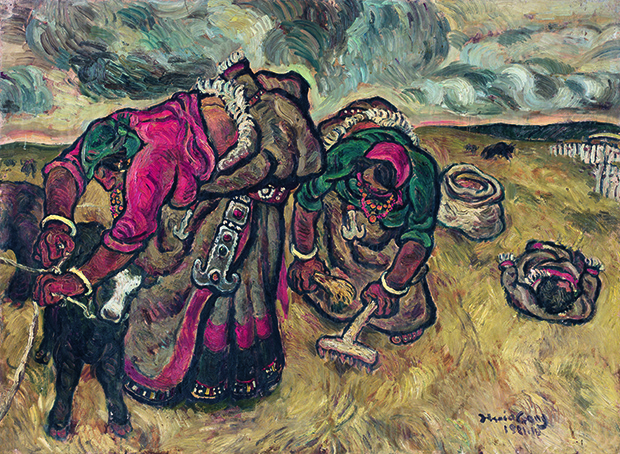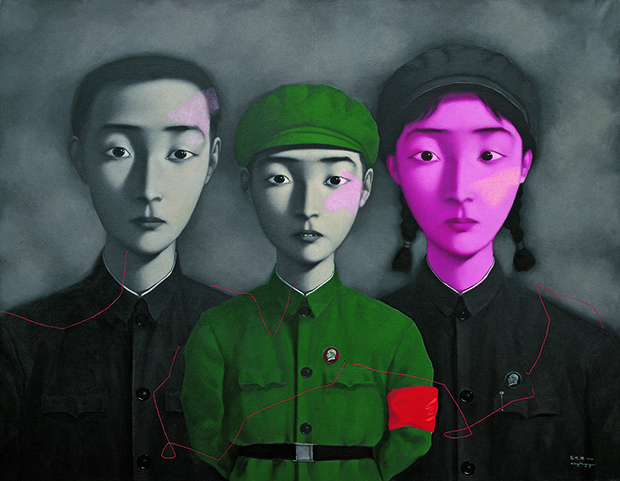
Zhang Xiaogang on money, art and China
Why does one of the the world's most important artists say the Chinese art market is 'like a parasite'?
For the Chinese painter Zhang Xiaogang, the turbulence of the 20th century was both a blessing and a curse. The Cultural Revolution, and its effects on his life and family may have brought colossal suffering, but it also provided him with a store of material to draw upon, when producing his striking paintings.
Is life better now, in the go-go era of Chinese capitalism? Not necessarily. Zhang, who is now in his late fifties, spoke at the Art Basel fair a few weeks back, and recalled a time when Chinese contemporary art was also called Chinese underground art, as it was so out of sync with government-approved artistic practices.

From the 1990s onwards, the freeing up of cultural and financial restrictions changed the fortunes of artists like Zhang, yet the more recent effect of market forces on art should not be underestimated.
“I really feel that with China in the last decade there was such a huge transition,” said the artist. “It’s not a cultural revolution, but a market revolution.”
Zhang remembered how he and his contemporaries initially asked their galleries for a simple monthly wage, rather than a share of sales. “Nowadays it's a little different,” he said. “For young and emerging artists, they take the domination of the market for granted. They are born into the market. But for people like me, who grew up without cell phones, we take the rise of the market very seriously. I see no progress, no change in the past decade. Chinese art might be growing in scale but I don't see a revolution. No new things coming in terms of visual language.”

Zhang described this newfound materialism as being like a ‘parasite’, yet he wasn’t wholly negative. For him and his fellow artists, the choice between producing work that honestly reflects the times or simply meets the art market’s expectations, is clear.
“Should we believe in history or in the market?” he asked. “If we believe in art history you might lose part of the market, but if you believe in the market and capital that will take full control of you. You don't have to worry much.”
It’s too early to say whether Chinese artists will take the easy way out. Yet, you can undertand Zhang's point of view more fully by watching the full discussion with Jane Debevoise of the Asia Art Archive, above. Meanwhile for a greater insight into this artist, who has lived through some interesting times, buy a copy of Zhang Xiaogang: Disquieting Memories here; and for a richer overview of Chinese art old and new get a copy of The Chinese Art Book.